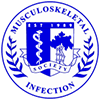Authors: Elie Ghanem, MD; Camilo Restrepo, MD; Peter F Sharkey, MD; Javad Parvizi, MD*
Title: Functional Outcome after Revision Knee Arthroplasty: Any Difference Between Infected and Non-Infected Cases?
Addresses: Rothman Institute, 925 Chestnut Street, Philadelphia, Pa 19107; phone number: 267-339-3572
Purpose: Periprosthetic infection (PPI) is a devastating complication. Surgical intervention to treat PPI is often required. The objective of this prospective study is to determine if there is any difference in functional improvement following revision TKA in patients with infected and non-infected failures.
Methods: 123 consecutive patients undergoing revision TKA at our institution were prospectively recruited into this study. The indication for revision TKA was PPI in 37 cases and aseptic failure in 86 cases. Detailed patient demographics and functional outcome using SF-36, KSS, Womac, lower extremity functional outcome score were collected at base line and at various time points after revision TKA. The baseline and two year follow up functional scores were calculated and compared. The functional score at the time of diagnosis of PPI (prosthesis in place) were used for baseline comparisons.
Results: All baseline functional scores, and their individual elements, for the infected cases were worse than the non-infected cases. The functional scores at the two-year follow-up were not different between the infected and non-infected cases. Hence, there was a more impressive improvement (Ä) in functional outcome for the infected cases following revision TKA compared to non-infected cases. However, the general health perception as determined by the patients themselves appeared to deteriorate after revision TKA in both groups.
Discussion: It appears that patients with PPI are markedly more disabled at base line than the non-infected cases. Although the functional scores at two year follow up were not significantly different, the change in outcome (Ä) was higher for the infected cases. The general health perception was lower in both the infected and uninfected groups compared to their baseline status.
We can conclude that patients with PPI benefit from revision TKA as much as their counterparts with aseptic failure. Despite the improvement in functional outcome, patient's perception of general health is poor after revision TKA.

